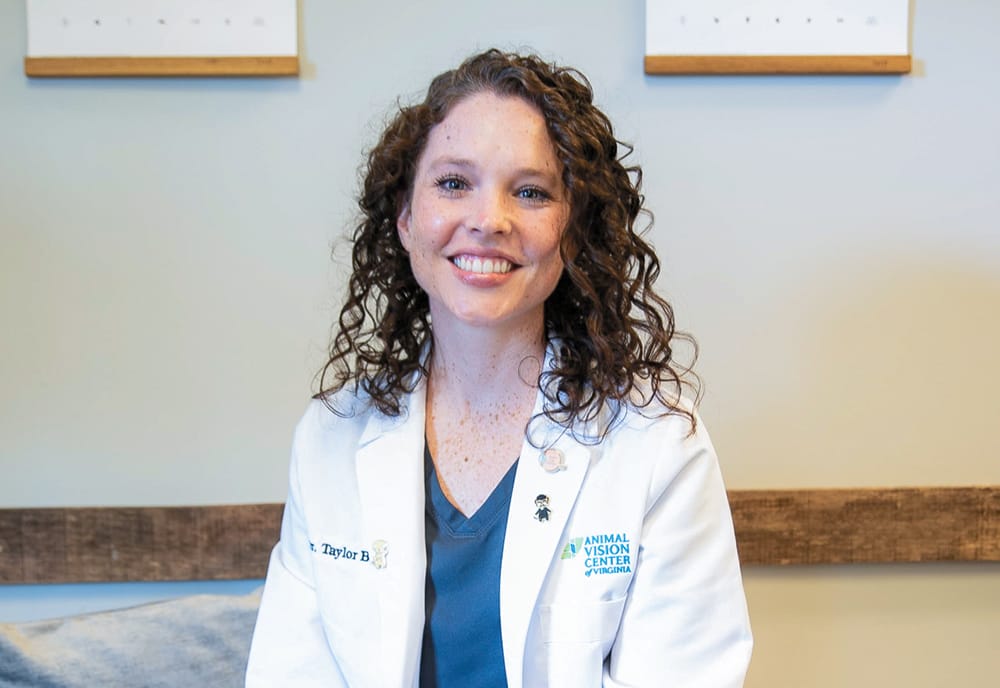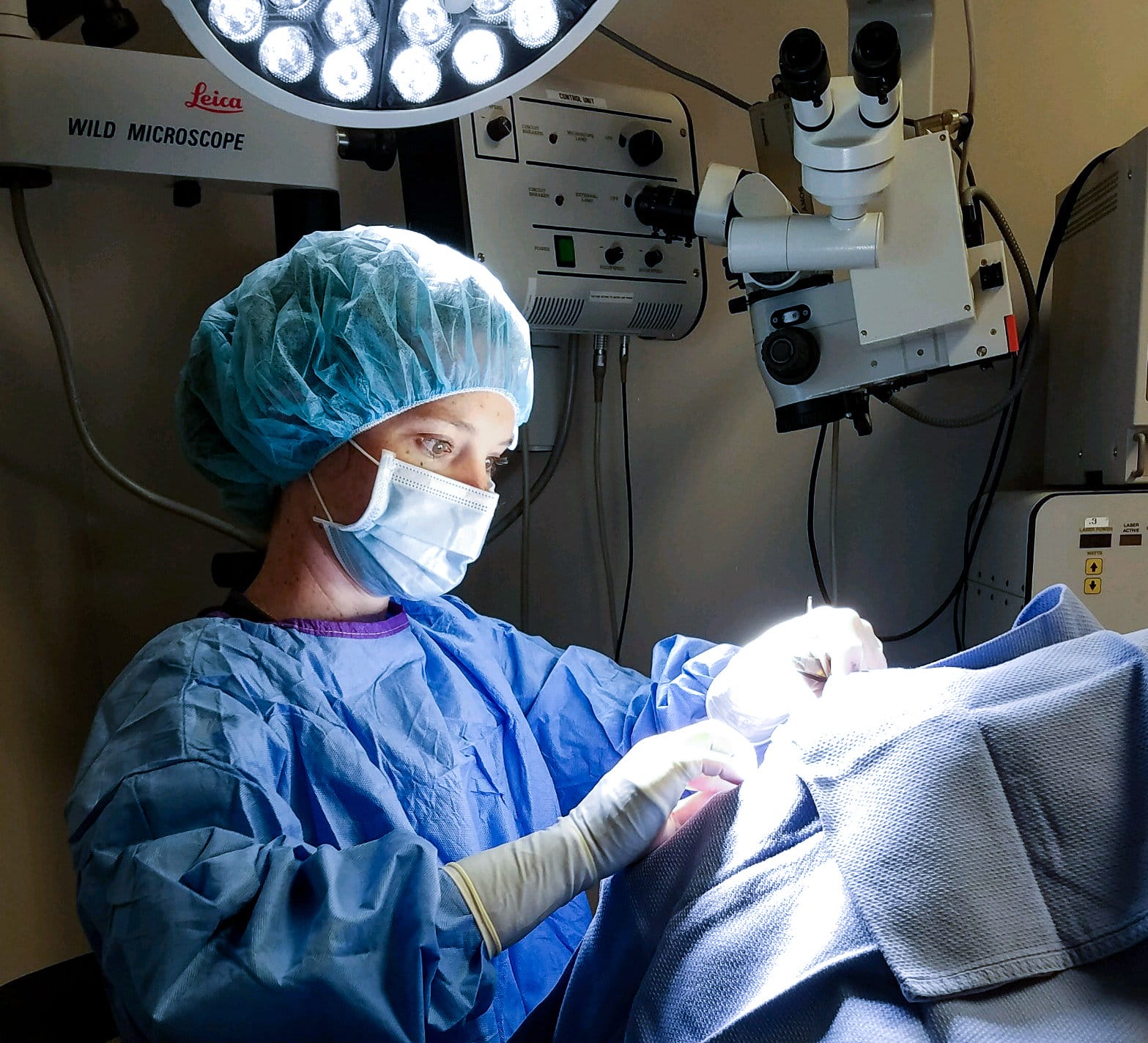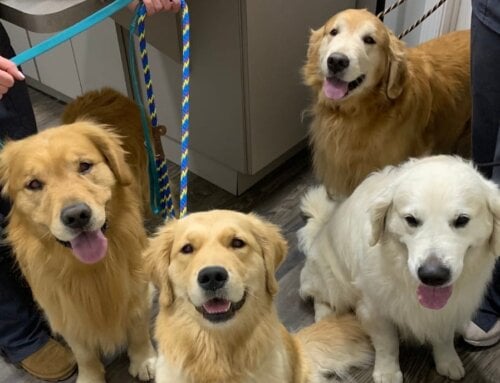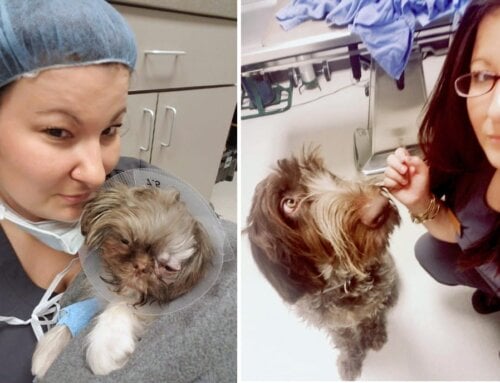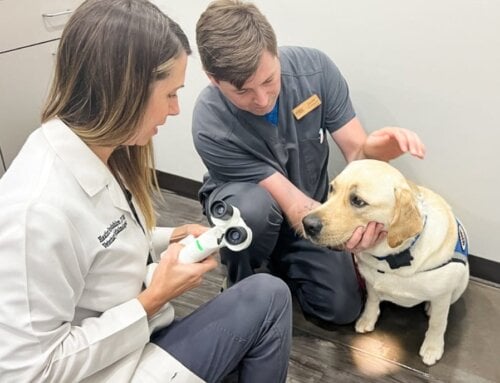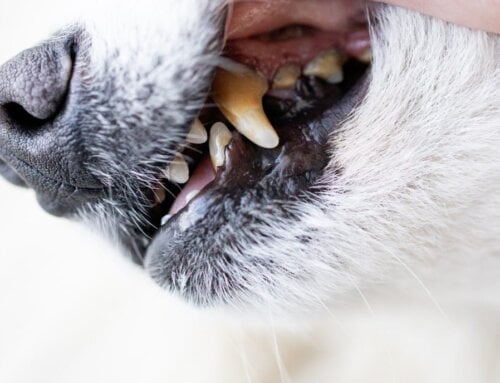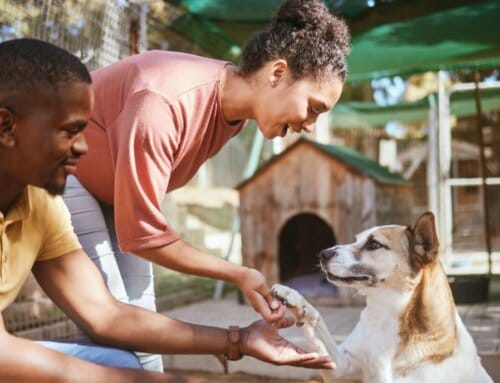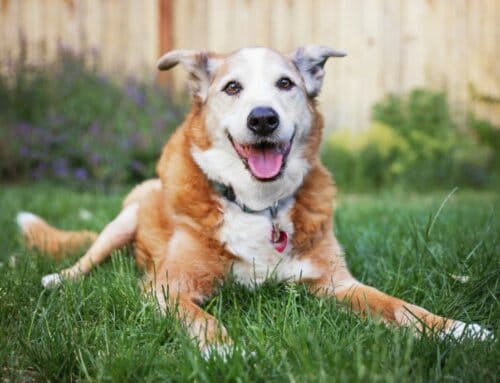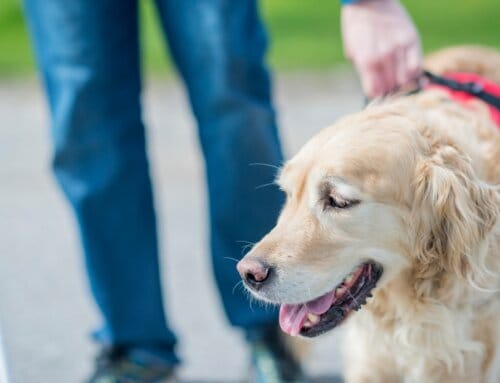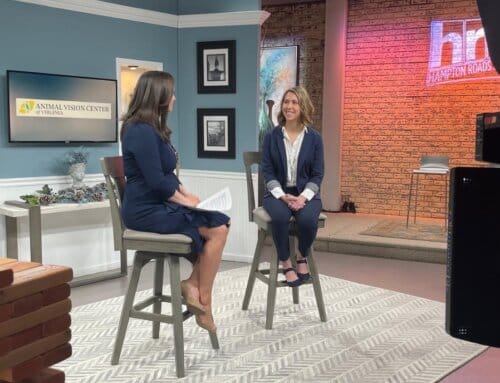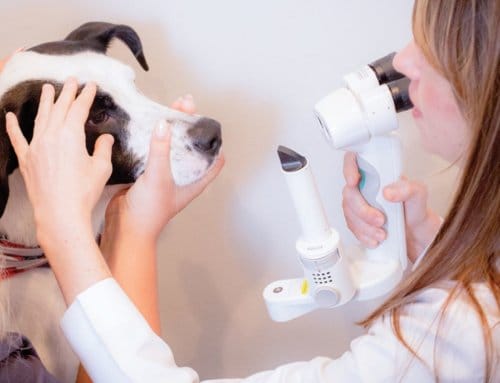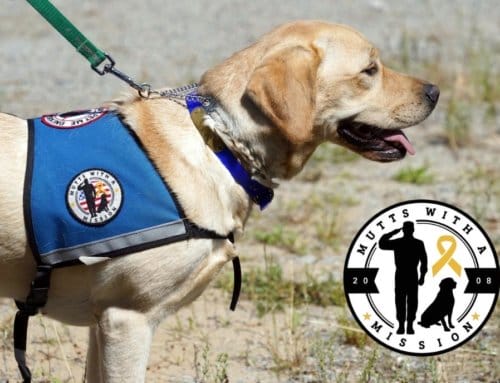Have you met Dr. Taylor Belk? Animal lover, bird watcher and Bulldogs fan, she recently relocated to Virginia Beach to join Animal Vision Center of Virginia (AVCVA) for a three-year ophthalmology residency.
Originally from Macon, Ga., she holds a Bachelor of Science degree in Forest Resources and a Doctor of Veterinary Medicine (DVM) from the University of Georgia. At AVCVA, she and Dr. Heather Brookshire see ophthalmic cases in a team setting, with supplemental training provided as part of a joint Comparative Ophthalmology Residency Training program with Animal Eye Care of Richmond.
And that’s not all. For her residency, Dr. Belk has developed and launched a year-long clinical trial to determine if Ketorolac, the non-steroidal, anti-inflammatory medication, influences the time for corneal ulcer healing. We caught up with Dr. Belk to find out more about her work—and this study that could potentially change treatment options for pet patients with corneal ulcers.
Why did you decide to enter the field of veterinary ophthalmology?
Learning about ocular anatomy and its diseases during vet school was the most fascinating subject for me; it was my first exposure to ophthalmology. After seeing cataract surgery for the first time, I knew from that moment that I would always want to have a hand in returning sight to my patients. Observing the pet patient’s reaction when they can see again, and the immediate improvement in the quality of life, was extremely rewarding.
 What have been the highlights of your residency with AVCVA so far?
What have been the highlights of your residency with AVCVA so far?
Learning from my incredible mentor, Dr. Heather Brookshire! I am expanding my ocular knowledge and surgical skills; learning phacoemulsification (cataract surgery); and enjoying the fun environment and the people I work with.
Tell us about the NSAID clinical trial that is underway at AVCVA.
The use of NSAIDs in patients with corneal ulcers is a controversial topic in veterinary ophthalmology. A prior study, which looked at an ophthalmic NSAID used at a high frequency on corneal epithelial cells grown in the lab, suggested its use could cause a delay in epithelial cell migration (and therefore corneal ulcer healing). Other clinical studies have had mixed conclusions.
Before coming to AVCVA, I had little experience using this medication in pets facing ulcerations. In my work here, I soon realized the benefit using a topical NSAID at a low frequency could have, as well as its lack of negative impacts on ulcers. The initial concept for this study came from transitioning away from high-frequency NSAID use, so we could scientifically evaluate if it was having any negative impact on healing times for corneal ulcers in dogs (and vice versa). Such a study has not been done in a controlled manner.
For the AVCVA NSAID clinical trial, my responsibilities include developing the bulk of the study design and handling the majority of the patient enrollment and data collection. I also will be writing the paper at the study’s conclusion and submitting it for publication.
How will the NSAID clinical trial results be used?
A statistician will analyze the results to determine if any effects we may find have statistical significance. This data will be used to write a scientific paper for the peer-reviewed publication, Veterinary Ophthalmology. The potential benefits for pet patients may include improved ocular comfort, reduced inflammation and reduced corneal vascularization. Potentially, it could improve corneal clarity.
At AVCVA, NSAIDs, specifically Ketorolac, are already readily used on the majority of our canine patients with corneal ulcers. If we can successfully show that this medication does not delay healing and has a positive impact on patient comfort and corneal clarity following healing, our study has the potential to directly impact and change how both ophthalmologists and referring veterinarians treat canine ulcers.
When you’re not working what do you like most about living in Virginia Beach?
The beach, of course! I also enjoy the various nature parks, the boardwalk, inland waterways and opportunities for getting outdoors. My husband and I love bird watching and walks with our dog, so Virginia Beach is the perfect area. I also love the fresh seafood and lots of tasty restaurants. I’m originally from Georgia, and we just relocated from Boston. Being further south in a more relaxed environment and easier way of life suits me just fine!
